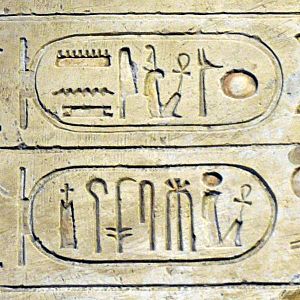Anthroponymy facts for kids
Anthroponymy is a special part of onomastics, which is the study of names. Think of anthroponymy as being a "name detective" for people's names! It comes from two ancient Greek words: anthrōpos, meaning 'human', and onoma, meaning 'name'. So, anthroponymy is all about studying the proper names of human beings, whether they are individual names or names for groups of people.
People who study anthroponymy are called anthroponymists. They are like detectives who explore how names are created, what they mean, and how they change over time. This field is important for many other subjects, like history, geography, and sociology. Experts from these areas often use anthroponymy to understand more about people and their past.
Anthroponymists follow certain rules and methods to research names. They collect information from old documents, records, dictionaries, and even websites. After gathering all this information, they analyze it. This can involve looking at the language of the names, comparing names from different times or places, or even using statistics to find patterns.
Contents
Types of Human Names
Anthroponymy helps us understand the many different kinds of names people have.
Individual and Family Names
This part of anthroponymy looks at the names we use for single people and how they connect to families.
Your Personal Name
- Given names: This is your first name, the one your parents chose for you. It's also called a first name or Christian name.
- Surnames: This is your family name, which you share with your parents and siblings. It's also known as a last name.
- Nicknames: These are informal names people use for you, often shorter or different from your given name. For example, "Alex" for "Alexander."
- Pseudonyms: This is a made-up name someone uses instead of their real name, especially if they are a writer or artist. Think of a pen name or a stage name.
- Mononyms: Some people are known by just one name, like "Madonna" or "Prince." This is a mononym.
Names from Family History
- Patronyms: These are surnames or parts of names that come from a father's name. For example, "Johnson" means "son of John."
- Matronyms: These are surnames or parts of names that come from a mother's name. For example, "Madison" means "son of Maud."
Names for Boys and Girls
Anthroponymy also looks at names based on gender. Names typically given to males are called andronyms. Names typically given to females are called gynonyms.
Group and Place Names
Anthroponymy also studies names for groups of people or populations.
- Demonyms: These are names for people who live in a specific place. For example, someone from London is a "Londoner," and someone from France is "French."
- Ethnonyms: These are names for ethnic groups, like "Maori" or "Inuit."
- Tribal names and clan names: These are names for specific tribes or family groups, often used in cultures around the world.
Names and Culture
Names are much more than just labels; they are like tiny history books! Anthroponymy shows us how names are deeply connected to a person's culture. By studying a name, we can often learn about someone's nationality or even their family's history. Names help preserve important language, cultural, and historical information for future generations. They tell stories about where people came from and what was important to their ancestors.
How Names Change and Connect
Names are not static; they can change and influence other words or names. Anthroponymy studies these interesting processes.
Names Becoming Other Names
- Anthroponymization: This happens when a common word or job becomes a name. For example, many surnames come from old jobs. Think of "Smith" (someone who worked with metal), "Miller" (someone who worked in a mill), or "Potter" (someone who made pottery).
- Deanthroponymization: This is the opposite! It's when a person's name becomes a common word. A great example is "braille". This writing system for visually impaired people is named after its inventor, Louis Braille.
People's Names for Places
- Transonymization (Anthroponyms to Toponyms): Sometimes, a person's name is used to create a place name. These are called anthropotoponyms. For instance, the famous city of Alexandria in ancient Egypt was named after Alexander the Great. Also, the country of Colombia and the Canadian province of British Columbia were named after Christopher Columbus.
Place Names for People
- Transonymization (Toponyms to Anthroponyms): This is when a place name is used to create a human name, often a surname or a name for a group of people. Many surnames come from places, like "London" or "Paris." Also, names for people from certain regions, like "ethnic Montenegrins" (from Montenegro) or "ethnic Ukrainians" (from Ukraine), are formed this way.
See also
 In Spanish: Antroponimia para niños
In Spanish: Antroponimia para niños
- Birth name
- Legal name
- Toponymic surname
- Exonym and endonym
- Suffix onym
 | James Van Der Zee |
 | Alma Thomas |
 | Ellis Wilson |
 | Margaret Taylor-Burroughs |


